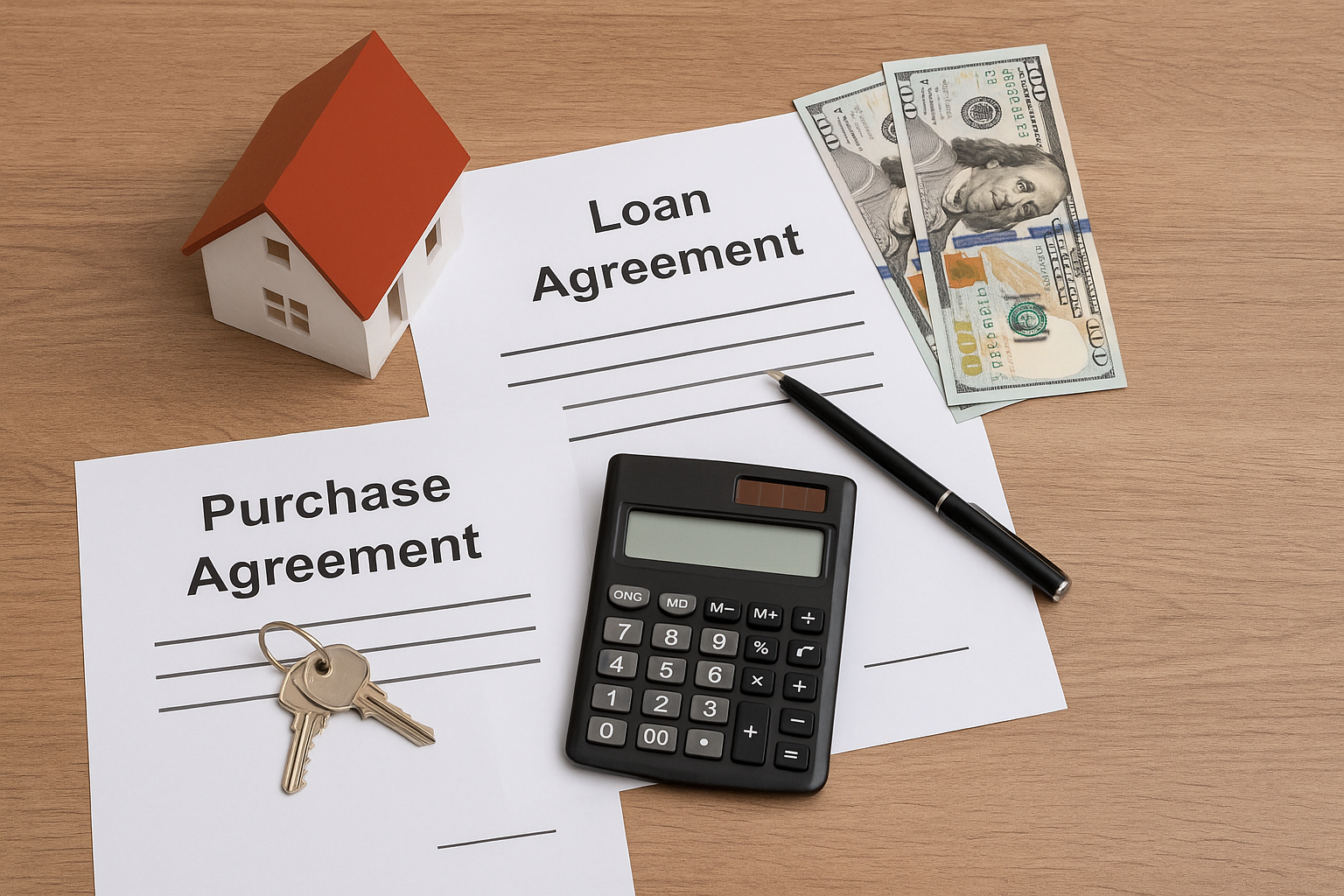Buying a home is one of life’s biggest milestones. It brings pride, stability, and long-term financial security — but it can also be overwhelming, especially for first-time buyers. Many people jump into the process with excitement and end up making errors that cost them time, money, or peace of mind.
The good news is that these mistakes are preventable. With the right preparation and awareness, you can confidently navigate the buying process and secure a home that’s both safe and valuable.
Here’s a complete guide to the common home buying mistakes people make and how you can avoid them.
Mistake 1: Searching Without a Budget
One of the first mistakes buyers make is starting their property search without a clear financial plan. Without a budget, you may waste time exploring homes that are out of reach — or worse, overcommit to something unaffordable.
How to Avoid It:
- Decide how much you can comfortably spend on the home.
- Include extra costs such as registration, interiors, and maintenance fees.
- Ensure your monthly EMIs won’t exceed 30–35% of your income.
A defined budget keeps your search focused and realistic.
Mistake 2: Delaying Loan Pre-Approval
Many buyers skip home loan pre-approval, assuming it can be handled later. But without it, you don’t know your real borrowing capacity. This often results in disappointment when a dream home turns out to be outside your eligibility.
How to Avoid It:
- Apply for pre-approval before shortlisting.
- Compare offers from banks and financial institutions.
- Use the pre-approval letter to negotiate confidently with developers.
Mistake 3: Overlooking Additional Costs
The sale price is only part of the expense. Buyers often forget to consider additional charges, which can add 8–10% to the cost of the property.
Hidden costs may include:
- Stamp duty and registration fees
- Parking space charges
- Maintenance deposits and society fees
- GST for under-construction projects
- Legal consultation or brokerage charges
How to Avoid It: Plan for these costs from the start. Keep a buffer in your budget so you aren’t surprised later.
Mistake 4: Failing to Research the Market
Some buyers make decisions based on glossy brochures or marketing pitches, without studying the market. This leads to overpaying or choosing the wrong locality.
How to Avoid It:
- Track average prices in your preferred area.
- Check future developments like metro lines, schools, or business hubs.
- Review the resale and rental potential.
Doing your homework ensures you buy a home that grows in value and remains convenient to live in.
Mistake 5: Being Swayed by Offers and Discounts
Builders often advertise flashy discounts, free furnishings, or “limited-time” offers. While tempting, these shouldn’t be the sole reason for choosing a property.
How to Avoid It:
- Focus on location, construction quality, and legal safety.
- Compare multiple projects to see which offers true long-term value.
- Remember that a freebie today won’t matter if the property underperforms later.
Mistake 6: Ignoring Legal Documentation
One of the riskiest mistakes is failing to verify legal documents. This can lead to disputes, stalled projects, or even loss of ownership rights.
Key documents to verify include:
- Title deed
- Encumbrance certificate
- Approved building plans
- RERA registration number
- Occupancy or completion certificate
How to Avoid It: Always hire a property lawyer to review documents. This step prevents costly legal complications in the future.
Mistake 7: Compromising on Location
A spacious and cheaper home may seem attractive, but if it’s in a poorly connected area, you’ll face long commutes, limited amenities, and weaker resale demand.
How to Avoid It:
- Prioritize connectivity to offices, schools, hospitals, and transit.
- Consider both current convenience and future appreciation.
- Balance size and price with the benefits of location.
For instance, boutique projects like Heavie Eden in Sarjapur offer both livability and growth potential because of their strategic location in a fast-developing zone.
Mistake 8: Forgetting Future Lifestyle Needs
Buying a home is a long-term decision. Many people only think of their present situation — for example, a single person buying a studio apartment — without considering future family growth.
How to Avoid It:
- Choose a home that can meet your needs for the next 5–10 years.
- Consider extra bedrooms, green spaces, and schools if you plan to have children.
- Think about resale demand from families who will value the same amenities.
Mistake 9: Skipping Property Inspection
It’s common to get carried away after one visit and finalize the deal quickly. But skipping a detailed inspection can reveal unpleasant surprises later.
Checklist for inspection:
- Adequate natural light and ventilation
- Quality of fittings and flooring
- Water supply and drainage
- Parking facilities and security
- Construction quality and finish
How to Avoid It: Visit the property multiple times, preferably at different times of the day. Talk to existing residents if possible.
Mistake 10: Waiting Too Long to Decide
While impulsive buying is risky, over-delaying is also a mistake. Prices may rise, or the unit you liked may be sold to someone else.
How to Avoid It:
- Do your research and keep your documents ready.
- Once you find a verified project that meets your needs, make a timely booking.
- Use your pre-approval to close the deal faster.
Mistake 11: Ignoring Resale and Rental Value
Even if you’re buying for self-use, the resale and rental demand of the property is crucial. Some homes depreciate quickly because of poor location or lack of infrastructure.
How to Avoid It:
- Look for demand drivers like IT hubs, universities, or business centers nearby.
- Check past price appreciation trends in the area.
- Choose projects with amenities that renters and future buyers value.
Mistake 12: Choosing Solely Based on Price
The cheapest property isn’t always the best property. Many buyers compromise on builder reputation or quality just to save money upfront, but this often results in delays or poor appreciation.
How to Avoid It:
- Weigh the price against quality, location, and future value.
- Prefer reputed developers with strong delivery track records.
- Remember, a good property will justify its price in the long run.
Conclusion
A home purchase is more than just a financial decision — it’s about securing your lifestyle and future. By avoiding these common mistakes, you’ll not only save money but also ensure your home brings comfort, convenience, and value for years to come.
Start your journey by exploring verified properties for sale that match your budget and location preferences. And if you’re seeking thoughtfully designed boutique homes, projects like Heavie Eden in Sarjapur offer an excellent blend of modern living, sustainability, and long-term growth.
Avoiding pitfalls and buying smart will turn your home purchase into one of the most rewarding investments of your life.
Related Reads
- Introduction: Chimney Sweep Services That Guarantee Lasting Safety
- Elevating Everyday Living: Trends in Luxury Interiors for 2025
- Enhance Curb Appeal with Exterior Painting Services
- The Ultimate Guide to Packing and Moving: Save Time, Money, and Effort
- How Content Marketing Companies in India Help Boost Online Presence



